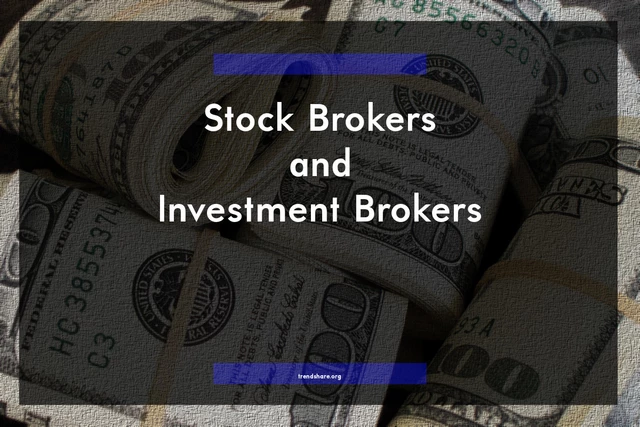last updated
What do investment brokers do? What is a stock broker? What do these brokers offer regular investors?
More Investing Articles
Investing During the Coronavirus Pandemic
For all of the bluster about self-directed investment, all the talk that it's easy to find great stocks and buy them at the right prices, most investors need at least a little help from others. Few investors place orders on their own. Almost no one can call up a great company and offer to pay $1000 for ten shares of stock. Even Warren Buffett or Carlos Slim Helú spends time negotiating, often with layers of professionals.
At any point in time, there might be thousands of people willing to sell a stock and thousands of people willing to buy. How do you put all of these people together? How do they negotiate a price? Do you need a broker to buy stocks? You need some sort of intermediary—generally markets, exchanges, and brokers.
What is a Stock Broker? What is an Investment Broker?
In the current jargon, a stock broker is an organization which employs people who carry out investments. The person who helps you buy and sell investments is an investment broker or a registered representative or a financial advisor.
An investment broker is a person who helps you buy and sell investments. These don't necessarily have to be stocks—they can be bonds, real estate, futures, options, and other investments.
Duties of Investment Brokers, Reps, and Advisors
The bare minimum a stock or investment broker must do is help you buy or sell securities (stocks, funds, bonds, options, futures, or other securities). That's it.
A broker may provide additional services, such as doing research, offering advice, or answering questions. These questions can range from "How much should I pay for a share of McDonald's?" to "What are the tax implications of buying municipal bonds?" to "What's with the sugar cane harvest in Brazil this year anyhow?" This advice is not free. Sometimes it's worth the money. Sometimes it's not.
Brokers must follow specific regulations of the SEC (PDF link; kind of dull reading) that attempt to ensure that they keep your best financial interests in mind. That's not exactly a master class in how to be a good stock broker; think of it as the bare minimum required to be a responsible broker.
What is a Brokerage Firm?
Most brokers don't work alone. A brokerage firm is a company which employs brokers for the purpose of investing for their clients. A brokerage firm has more leverage than an individual broker due to its size. They can pool their orders, for example, to execute fewer and larger trades by serving as a mediator between their own clients.
Are these terms confusing yet? Many people use the word "broker" to refer to "brokerage".
Do You Need a Broker to Invest?
Before the Internet was available to the general public, the easiest way to buy or sell a stock was to call a stock broker at a brokerage on the telephone. You'd get a call or letter the next day telling you about your transaction.
With the Internet, it's much easier to buy or sell without ever talking to a human being. Of course, now a brokerage has to hire fewer brokers and its costs are lower. Several new brokerages started the trend of offering fewer services at deeply discounted costs: for example, buying or selling for a flat fee of $10 or less without requiring you to speak to anyone, make a call, send a letter, do anything other than indicate your intent.
Generally these days, "discount brokerage" and "online brokerage" refer to the same thing. If you read an investing book from even twenty years ago, you may find the terms a little outdated.
If you don't need guidance on your trades, you can minimize your costs by using a discount broker. Of course, many of these brokerages also offer premium services such as paid financial advice, but you can use that only if you need it. This is the easiest way to buy stock and the easiest way to sell stock shares: go to a website, click a few buttons, and you're done. Alternately get the mobile app and keep your phone/tablet/phablet out of the hands of toddlers.
The Internet has also provided much more accurate and available information on companies and their stocks: you can get news as it happens to help you make good decisions. Now you can get opinions as they happen to tempt you to make frequent and rash decisions. You don't have to wait days for stock broker advice.
Wise investors are patient. There's no need to rush. Take advantage of the wonderful opportunities the Internet provides (discount brokers, copious research), but wait for the right time to buy great companies at good prices. You don't need anyone telling you what to do; you are in charge of your own investments.
← Should You Invest in the Highest Dividend Paying Stocks? | Facebook Stock Price and Value→
